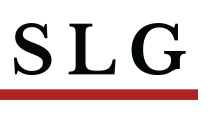Lindsay Lyster QC — a partner with the Vancouver firm of Moore, Edgar, Lyster — appears regularly before the Supreme Court of Canada on behalf of the B.C. Civil Liberties Association. Following the hearing of Mounted Police Association of Ontario v Canada, SCC 34948, Moira Dillon spoke with Lindsay about the role of interveners before the Court and the BCCLA’s intervention in this case.
What was the issue before the Court in MPAO v Canada?
The main issue was whether the statutory provisions preventing RCMP officers from unionizing are in breach of freedom of association under section 2(d) of the Charter. In place of unionization, the current scheme creates a staff relations program where RCMP members are employed by the RCMP to assist other members with their grievances.
What was the BCCLA’s position on this issue?
We certainly supported the appeal and took the position that the scheme currently in place is a breach of RCMP members’ freedom of association. In our view, the collective bargaining right protected under s.2(d) is a precondition to freedom of association, not just a derivative right.
Why do you think the Court granted leave to appeal in this case?
The Supreme Court was quite divided in a recent series of cases dealing with the scope of freedom of association in the workplace and the extent to which freedom of association guarantees collective bargaining rights. This case gave the Court another opportunity to look at those issues. I think the Court also granted leave to appeal because the RCMP is our national police force, and there is an intrinsic national interest component to the terms and conditions under which the members of our national police force are employed.
How does an organization like the BCCLA decide if they want to intervene in a case?
The fundamental question we consider is whether intervening in a given case would give us an opportunity to fulfil our mandate of extending civil liberties and human rights in BC and across the country. A litigation evaluation is prepared to consider if the case is in conformity with our mandate and what we could helpfully say that could be different from what the parties or other potential interveners have to say.
Why are interveners helpful to the Court?
MPAO v Canada demonstrates why interveners are helpful to the Court, because the issues raised in this case extend far beyond the particular interests of the parties. For the MPAO, they’re trying to achieve an end—the end of being able to unionize. For the Attorney General of Canada, they’re trying to have their legislation upheld. But the issues go beyond these interests and really go to the interpretation of our Charter in ways that have application across the board. So it’s useful for the Court to hear from interveners with expertise in various areas who can materially add to the dialogue before the Court.
What do you think the Court is looking for when deciding if leave to intervene should be granted?
A proven track record of having obtained intervener status and assisted the Court in the past is helpful. It’s also important in preparing your intervention application to clearly tell the Court who you are, how your organization’s history and expertise relates specifically to what’s at issue, and to identify one or two issues where you can materially add to the conversation. You need to be able to show that your contribution will shed some new light that would not otherwise be shed by the parties.
What is the main challenge for an intervener appearing before the Court?
I think the greatest challenge is that you get only ten minutes for oral argument. Ten minutes goes by in the blink of an eye when you’re on your feet before the Supreme Court of Canada. And during those precious ten minutes, you have to be prepared to give the Court what it wants—which may not necessarily be what you had prepared to say. So you need to have a broad familiarity with the case, particularly the legal issues involved. And you need to be prepared either to speak for your allotted ten minutes or to spend ten minutes answering the Court’s questions.
What advice do you have for a lawyer who is intervening before the Court for the first time?
My advice would be to actually go to the Court and hear an appeal. The Supreme Court of Canada is a different court and it can be quite intimidating, even if you’re not a first timer. So it’s important to get whatever familiarity you can. If you can’t physically go the Court, then watch an appeal on the Court’s website. Speak to senior counsel. Or participate in a practice moot if you have the opportunity. In terms of preparing your documents, have a look at the kinds of materials that have succeeded in getting intervener status in the past. And take the sound advice of your Ottawa agent.

